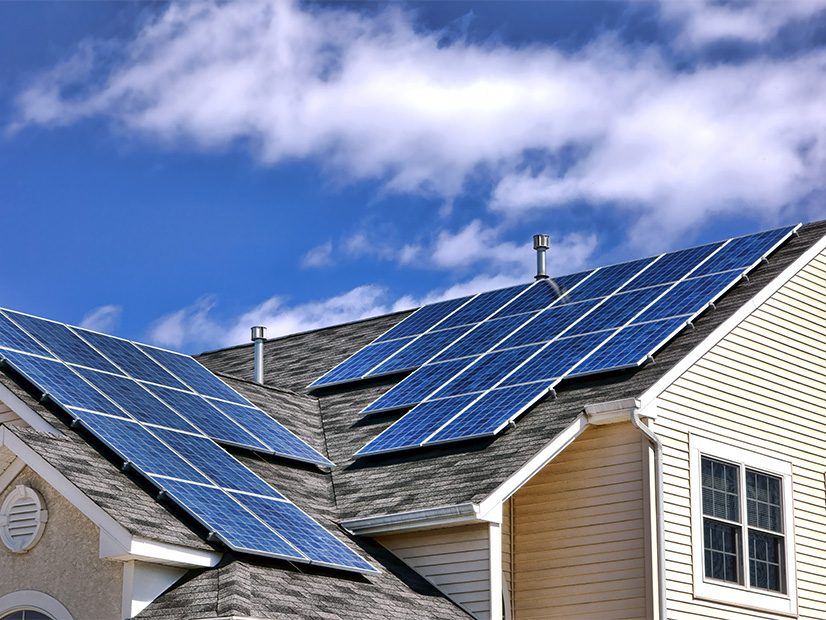Responding to a rehearing request by Advanced Energy United over FERC’s partial acceptance of ISO-NE’s third Order 2222 compliance filing, FERC has directed ISO-NE to submit an additional filing to specify its metering and telemetry practices for distributed energy resource aggregations (DERAs) (ER22-983-006).
Order 2222, which requires RTOs to update their tariffs to enable DERAs to participate in wholesale markets, has led to a long series of compliance filings and rehearing requests related to ISO-NE’s compliance.
FERC accepted ISO-NE’s fifth compliance filing April 11, subject to further compliance. (See Still More Work for ISO-NE on Order 2222 Compliance.)
On May 23, FERC issued an order on rehearing responding to Advanced Energy United’s challenge of ISO-NE’s third compliance filing, which FERC accepted Nov. 2, 2023. (See FERC Accepts ISO-NE Order 2222 Compliance Filing.)
“We sustain three of the four findings AEU [Advanced Energy United] challenges,” FERC ruled.
Responding to the trade association’s argument that ISO-NE’s three metering options for DERAs — “retail delivery point metering, submetering with reconstitution and parallel metering” — are unnecessarily prohibitive, FERC affirmed its finding that these options “do not pose an unnecessary or undue barrier to individual DERs joining an aggregation.”
FERC upheld its acceptance of ISO-NE’s proposal to apply the requirements of the “binary storage facility” and “continuous storage facility” participation models for DERAs to provide withdrawal service. FERC also continued to find that the ISO-NE properly explained the steps it took to “avoid imposing unnecessarily burdensome costs on DER aggregators and individual resources in DERAs.”
However, FERC set aside its prior ruling that ISO-NE adequately described its metering requirements for DERAs.
“Specifically, we set aside our finding that, for those DERAs containing behind-the-meter DERs, ISO-NE’s tariff includes a basic description of the metering practices for DERAs with references to specific documents that contain further technical details for metering and telemetry practices,” FERC wrote.
“ISO-NE’s basic description of its metering practices for DERAs is incomplete because its tariff does not include submetering requirements for DERAs participating as submetered Alternative Technology Regulation Resources,” FERC added.
FERC directed ISO-NE to submit an additional compliance filing to specify these submetering requirements. FERC also set aside its ruling that ISO-NE’s proposal to extend “existing requirements for Alternative Technology Regulation Resources to DERAs” is just and reasonable, writing that it will reassess these requirements after the RTO submits its additional compliance filing.
Caitlin Marquis of Advanced Energy United said FERC’s directive “sends ISO back to the table to resolve one metering barrier for DERs seeking to provide regulation service, which is welcome and important.”
“However, as New England and the rest of the country face rising demand, rising electricity prices and reliability threats, much work remains to ensure the region is taking full advantage of DERs,” Marquis added.
Commissioner Mark Christie concurred with the parts of the order that accepted ISO-NE’s filing and dissented “to the rest.”
Christie decried Order 2222’s “seemingly never-ending and avoidable rounds of compliance filings” and called the compliance saga a waste of time and money.




